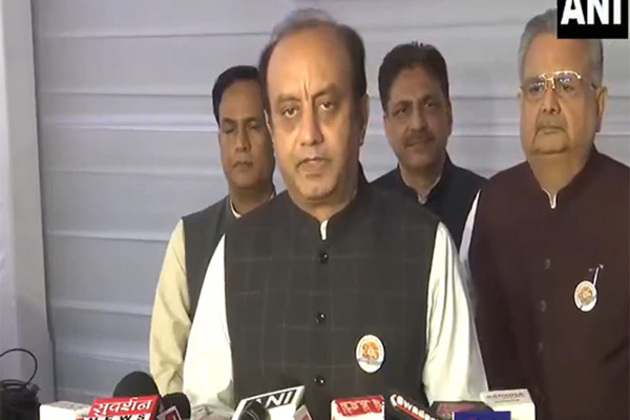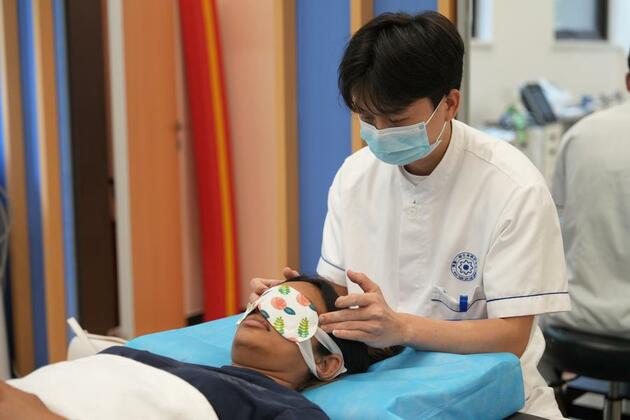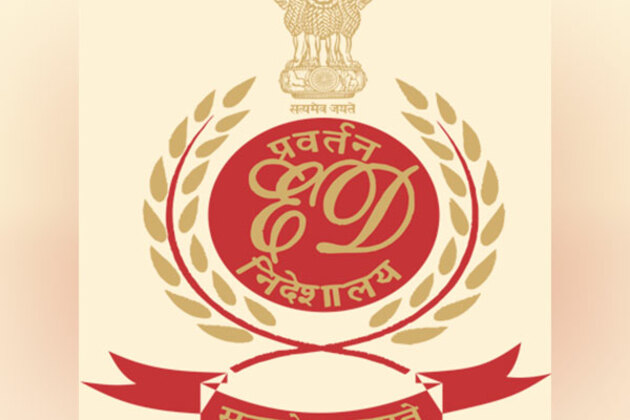What will happen to school grades during the coronavirus pandemic?
The Conversation
08 Apr 2020, 01:09 GMT+10

COVID-19 has brought a tsunami of change and impacted every facet and sector of society, including the lives of children, parents and teachers. UN Secretary-General Antonio Guterres recently said that the coronavirus pandemic is the biggest global challenge since the Second World War.
When K-12 schools will reopen in Canada remains an open question, and hope is quickly fading that students will be able to finish the 2019-20 academic year with face-to-face instruction. Ontario's schools, for example, are officially closed until May 4 and that date will be re-assessed with public health advice.
Provincial education systems and school boards have responded to the challenge by developing a range of options that provide resources for parents to support home learning and opportunities for students to learn online.
Some boards and schools last week saw teachers phone or email families to assess families' capacities for remote learning or to "determine additional supports required for children with complex learning needs." Some were already hosting online classes. Ontario's guidelines now suggest weekly targets like five hours of work weekly in math and literacy for students between kindergarten and Grade 3, and three hours per week per subject in semestered high schools.
Emergency, provisional education
Although it is reassuring that provincial education systems are seeking ways to keep students learning and connected with their teachers, these emergency measures are only provisional.
With some parents experiencing layoffs, working in stressful essential services jobs or working from home, the priority should be supporting children.
With this said, some students, particularly senior high school students thinking about moving onto post-secondary institutions, are likely concerned about their grades.
Reliable assessment a challenge
It is still unclear whether students in Ontario and elsewhere will receive traditional letter or alphanumeric grades on final report cards.
Even under ideal circumstances, grading is a formidable challenge for teachers. Among other things, teachers need to balance a variety of assessment methods and carefully weigh evidence of student learning against provincial expectations in order to generate a reliable and valid grade.
In secondary schools, particularly in senior levels, grades serve as the primary basis for admission to post-secondary programs. Final report cards take on significant importance and may result in a great deal of stress and anxiety for students.
In varied ways, provincial education systems and school boards have recognized that the COVID-19 crisis will exacerbate student stress and have responded by increasing mental health supports for families and children.
Post-secondary transitions
Stephen Lecce, Ontario's minister of education, reassured students that "no graduation will be compromised" for students meant to graduate this year, and that he's working with post-secondary institutions to ensure there's "a continued application process that doesn't get delayed."
Universities across Canada have recently developed a range of approaches to generate final course grades.
Some universities such as Western University and Brock University are allowing students to decide amongst a possible alphanumeric grade, pass/fail (credit/no credit) or dropping a course with no academic penalty. Others, such as the University of Alberta, are implementing a mandatory pass-fail system.
Formative feedback
Unlike university students, who were well into their winter terms when the suspension of classes began, K-12 students still had about three months of school to complete for a regular school year.
For the majority of high school students, a pass/fail grade for this term makes sense to alleviate some pressure. Students already enrolled in e-learning credits would be the exception to this rule.
This would provide the benefit of allowing students and families to keep in mind that teacher feedback, not grading, is what must be preserved as the COVID-19 crisis deepens.
As with standard grading procedures, a pass would constitute a mark of 50 per cent or more in a course. Teachers would rely on graded work prior to school closures - along with assignments that take place between now and the official end of the school year - to determine final grades.
Moving from letter or percentage grades to a pass/fail system would help lessen the evaluation burden on teachers and also allow them to focus more attention and energy on providing formative assessment feedbacks that can promote student learning.
It would also alleviate some of the stress experienced by families and students.
Emergency responsive student assessment
Although most school districts and many independent schools provide e-learning, provincial education systems were understandably not equipped to make such a rapid shift to online learning for all students.
Most teachers will be relying on unfamiliar instructional approaches to promote student learning under difficult circumstances.
While online learning provides opportunities for students to continue their studies at a distance, not all students will have access to the same technology or internet access and to a parent or guardian who is available to help them or who speaks the language of instruction.
Many students - such as those from lower socio-economic status backgrounds, those who are immigrants or are enrolled in special education will face increased academic challenges by a shift to online learning.
Read more: Culturally responsive teaching in a globalized world
The digital divide should figure prominently into discussions of equity and fairness.
Schools are moving into uncharted territory. Emergency responsive student assessment will need to be adaptive to a situation which is seemingly changing on a day-to-day basis.
Looking ahead
Of course, special provisions should be made for high school students in their graduation year so that post-secondary institutions are able to differentiate amongst applicants and offer spots in an equitable fashion.
Fortunately, the majority of admission decisions have been made. Providing mid-term alphanumeric grades in April, based on the work completed to date, will allow post-secondary institutions to make their final round of admission offers to students in Grade 12.
A bigger question is how educational systems can equitably support and envision positive transitions for all students next year and into our uncertain future.
Author: Louis Volante - Professor of Education, Brock University 
 Share
Share
 Tweet
Tweet
 Share
Share
 Flip
Flip
 Email
Email
Watch latest videos
Subscribe and Follow
Get a daily dose of Calgary Monitor news through our daily email, its complimentary and keeps you fully up to date with world and business news as well.
News RELEASES
Publish news of your business, community or sports group, personnel appointments, major event and more by submitting a news release to Calgary Monitor.
More InformationNorth America
SectionCanada-US trade talks resume after Carney rescinds tech tax
TORONTO, Canada: Canadian Prime Minister Mark Carney announced late on June 29 that trade negotiations with the U.S. have recommenced...
"Should understand dignity of LoP": Sudhanshu Trivedi slams Rahul Gandhi on India-US trade remarks
Raipur (Chhattisgarh) [India], July 5 (ANI): BJP MP Sudhanshu Trivedi on Saturday slammed Congress MP Rahul Gandhi over his remarks...
Hainan emerges as China's premier international medical tourism destination
HAIKOU, July 5 (Xinhua) -- Nestled in the coastal town of Boao in south China's Hainan Province, the Boao Lecheng International Medical...
Trump says Iran may restart nuclear programme "at a different location", calls it "a problem"
Washington [US], July 5 (ANI): United States President Donald Trump said on Friday that Iran has not agreed to inspections of its nuclear...
Nehal Modi tampered with evidence, intimidated witnesses in Nirav Modi case: Officials
By Rajnish Singh New Delhi, [India], July 5 (ANI): Nehal Deepak Modi, the brother of fugitive diamantaire Nirav Modi, allegedly played...
Musk threatens Republicans over Trump's 'big, beautiful bill', sparks internal rift
Washington [US], July 5 (ANI): Elon Musk is threatening Republicans who voted for President Donald Trump's 'big, beautiful bill,' posing...
Canada
SectionCanada-US trade talks resume after Carney rescinds tech tax
TORONTO, Canada: Canadian Prime Minister Mark Carney announced late on June 29 that trade negotiations with the U.S. have recommenced...
Lululemon accuses Costco of selling knockoff apparel
Vancouver, Canada: A high-stakes legal showdown is brewing in the world of athleisure. Lululemon, the Canadian brand known for its...
Australian PM rejects US pressure to ease biosecurity rules
SYDNEY, Australia: Australia will not ease its strict biosecurity rules during trade talks with the United States, Prime Minister Anthony...
Hainan emerges as China's premier international medical tourism destination
HAIKOU, July 5 (Xinhua) -- Nestled in the coastal town of Boao in south China's Hainan Province, the Boao Lecheng International Medical...
Whitecaps exercise buyout on F Damir Kreilach
(Photo credit: Christopher Creveling-Imagn Images) The Vancouver Whitecaps have exercised a buyout of forward Damir Kreilach's guaranteed...
CHINA-HAINAN-BOAO-MEDICAL TOURISM (CN)
(250705) -- BOAO, July 5, 2025 (Xinhua) -- Canadian figure skating coach Mark Batka (C) experiences Chinese calligraphy at the Boao...











